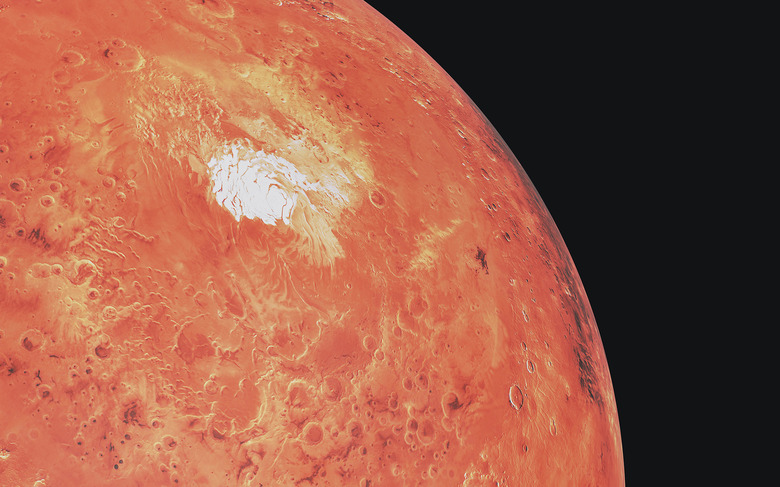Japan's Mars Mission Just Hit A Massive Delay
The Japanese space agency JAXA has confirmed that its upcoming Mars mission, which would see a spacecraft traveling to the Martian moon Phobos, has been delayed by two years.
The Martian Moons eXploration mission (MMX) was originally slated to launch sometime this year. However, the agency has blamed issues with a part of the H3 rocket that would lift the spacecraft into orbit as the main reason behind the delay.
JAXA shared the news about the delay of the Japanese Mars mission on X (formerly Twitter), saying that the year has been "officially revised from FY2024 to FY2026." No exact details on when it hopes to launch in 2026 have been shared at this time.
It's disappointing to see yet another high-profile space exploration mission being delayed, especially one that will travel somewhere we haven't explored extensively. The Phobos mission will help us learn more about the strange little moon that orbits Mars, which could help us determine its origins.
The Space Development Strategy Headquarters of the Japan Government has approved the revision for the Schedule for the Basic Plan on Space Policy, and the launch year for the Martian Moons eXploration (MMX) mission has been officially revised from FY2024 to FY2026.
— Martian Moons @JAXA (@mmx_jaxa_en) December 22, 2023
The mission has not been canceled, at least, but it does join the ranks of several other delayed missions, including the launch of Artemis II, which was delayed to 2025 at the earliest. That delay also pushed the launch of Artemis III back to 2026, which means we won't set foot on the Moon for another few years.
Japan has other space missions in the works already, though. The Japanese SLIM probe is set to land on the Moon sometime this month, and it will hopefully help astronomers come up with a more accurate way of landing on the lunar surface.
Another mission to the moon, run by U.S.-based company Astrobotic, would have seen the first U.S. rover on the moon since Apollo, but the Peregrine mission unfortunately encountered some issues and doesn't appear like it will make a soft landing on the Moon after all.
These continued delays are disappointing, but sometimes needed to ensure the expensive hardware needed to launch these missions is in tip-top condition before setting off, as this increases the chance the spacecraft will make it to their final destinations.
